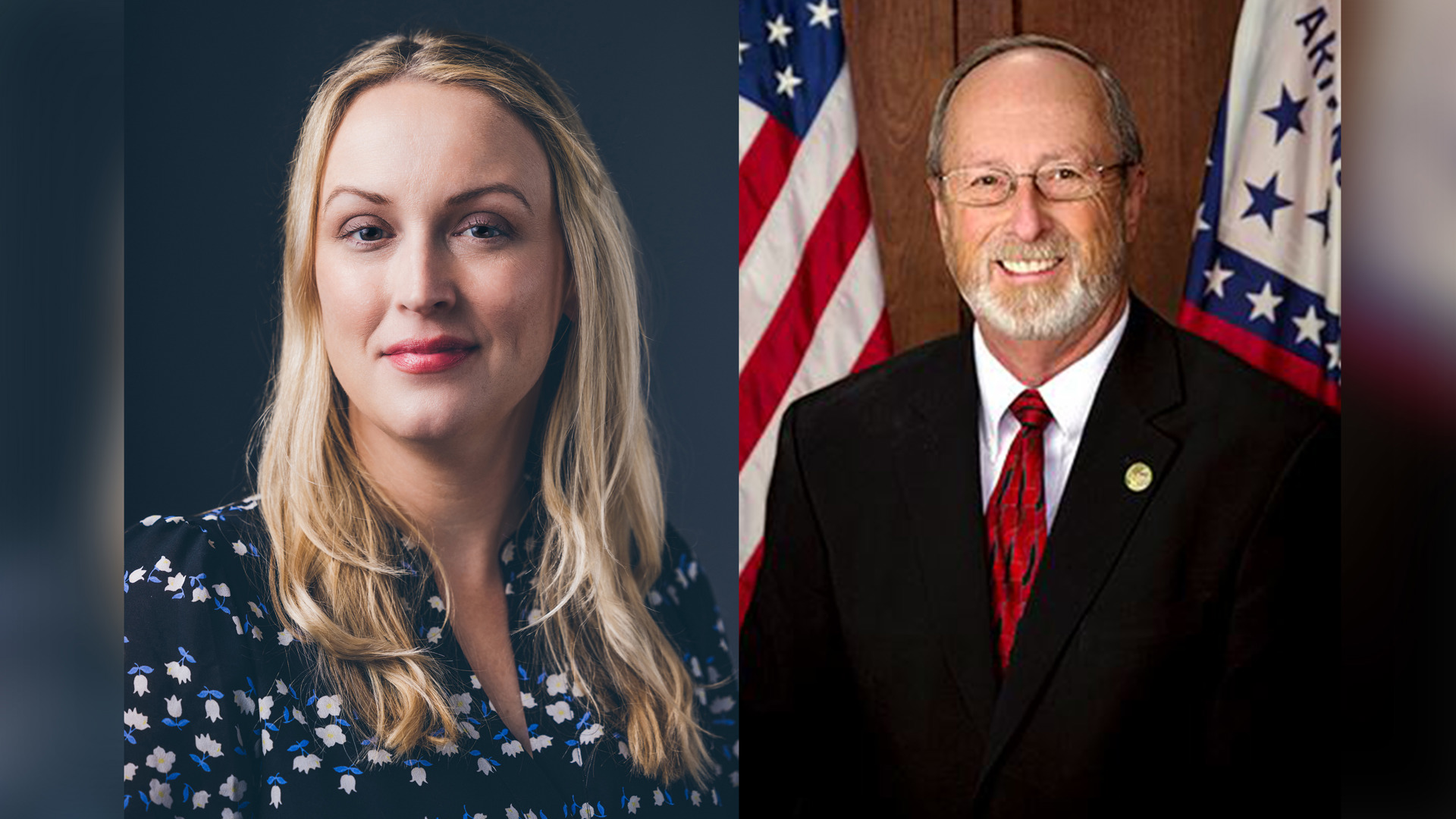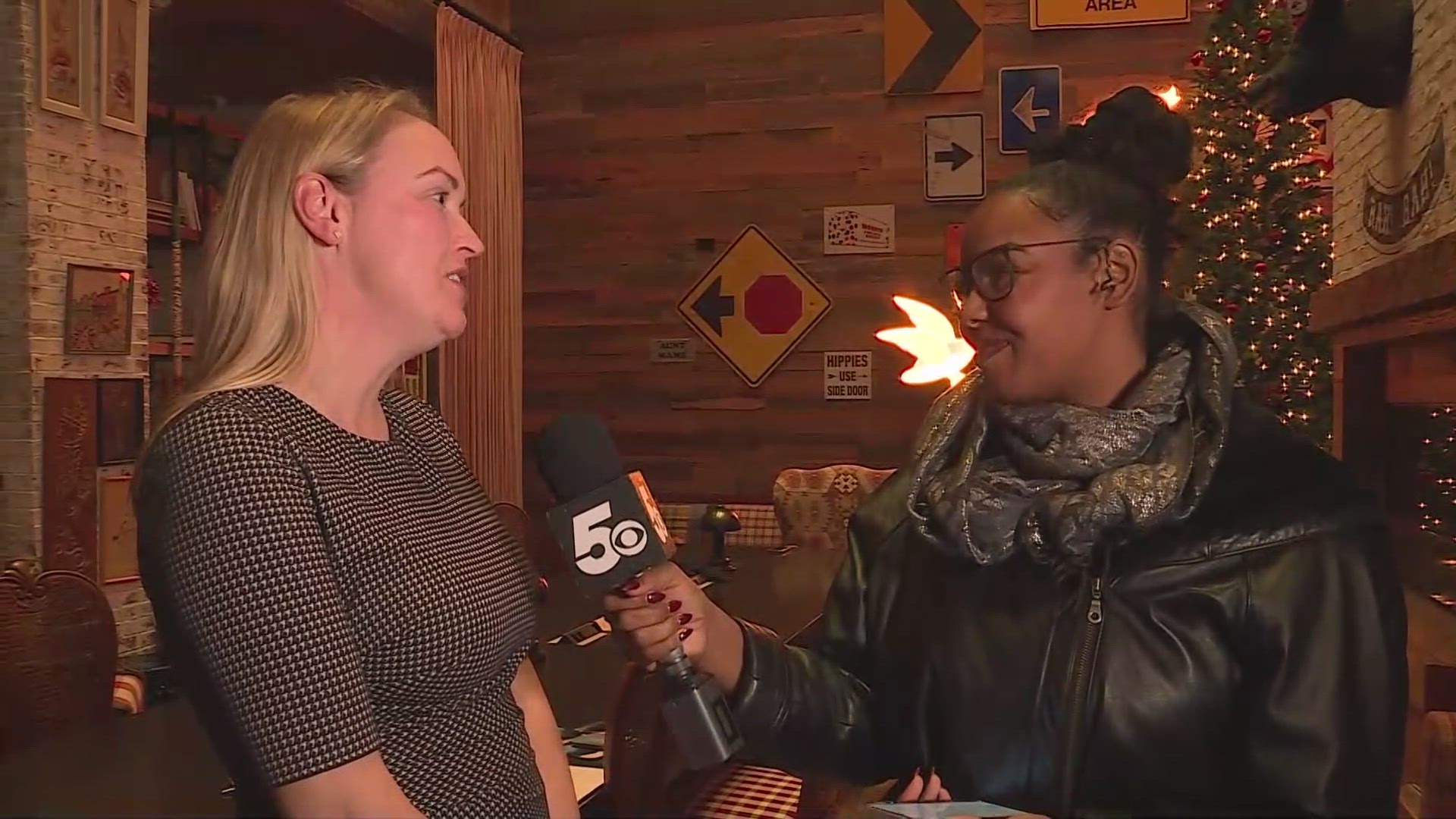Molly Rawn wins Fayetteville mayoral race in runoff election
Molly Rawn and incumbent Lioneld Jordan faced off in a runoff race because neither candidate got more than 50% of the vote on Nov. 5.

Molly Rawn has won in a runoff election against Lioneld Jordan and will now serve as the mayor of Fayetteville.
Incumbent Jordan and challenger Rawn originally faced off against each other in November, alongside other candidates Tom Terminella and Adam Fire Cat.
Jordan was seeking his fifth term after first winning in 2008. Before that, he served on the Fayetteville City Council for eight years.
Rawn has lived in Fayetteville for 19 years. For the past eight years, she has served as CEO of Experience Fayetteville, the city's tourism bureau.
On election night, Jordan took 46.92% (16,609) of the vote, while Rawn received 36.92% (13,068), Terminella 12.39% (4,386), and Fire Cat 3.76% (1,332).
After going to a runoff, Rawn and Jordan continued their campaigns, which came to a head on runoff election day on Dec. 3.
According to unofficial results from the runoff, Rawn won with 51.14% (5,411) of the vote to Jordan's 48.86% (5,169).
In an interview just hours after results dropped, Rawn told 5NEWS that she was excited and ready to move forward.
"We are so excited, and so grateful to the people of Fayetteville, and ready to move forward. We're excited about the things we're going to do together," Rawn said. "Let's all work together and move forward."
Rawn said that when she hits the ground running next year, she wants to fulfill the campaign promises that she made.
"We're going to look at our infrastructure, we're going to take a closer look at housing, it's difficult to live in Fayetteville and it's becoming increasingly unaffordable, and so how can we as a city begin to take steps to address that," Rawn said.
The Candidates
Lioneld Jordan
Experience
"I work well with people. People know me. I've got 16 years of experience, so I've seen it all. I've seen pandemics, I've seen recessions, I've seen hyperinflation. And through it all, I believe I bring stability in an uncertain world that we're seeing right now."
"I handle a $513 million budget, and I have 926 staff that I have to make sure that they're taking care of. I think one of the most important things you do as elected officials is properly manage taxpayers' money, and I do that very well."
Housing Crisis
"We're going to incentivize the development community to come in right now."
"As far as housing goes, we have a wage crisis in this city now. The average house in this city is $460,000 a year. Now we have lots of people working in this city who make $12 to $15 an hour. They will never own a home, and the rent has skyrocketed in the last few years. What we got to do, I believe, we flood the city with housing along 71B and it will drive the price down on the houses."
Infrastructure
"I think the first thing that we need to work on is water and sewer infrastructure because if you don't have proper infrastructure, you don't have anything."
"What we're going to do from right now until this time next year, we're going to spend $110 million on water, sewer infrastructure. Then I'm going to be looking at a bond. We're going to fix all the all the lines and everything. That's something I've wanted to do for a while."
"We're building roads. As you can tell if you drive around town, we have road construction going on everywhere. It's inconvenient for the present time, but in the future, we'll have the proper infrastructure to meet any kind of growth."
Unhoused population
"We've spent $4.9 million on homeless programs and low-income rental and housing for folks that have low income. We spent $1.4 million on organizations that help the homeless and low-income people keep their homes. Those are important things; we're going to continue that."
"When we look at the homeless thing, it's not just something unique to the city of Fayetteville. It's a regional thing, and all of us in the region have got to say we've got a problem here. When all of us work together, I've never seen anything this region couldn't accomplish together."
Climate change and the environment
"We have preserved 1,100 acres of urban forest that will never be touched again."
"If you read the Climate Action Plan, the number one goal is to cut greenhouse gas emissions. We got to keep clean water, we got to keep clean air, and whatever it takes to do that."
Molly Rawn
Experience
"During my time at Experience Fayetteville, we had our highest tax collection month on record, and I have built an incredible team that is responsible for increasing economic development in the city through tourism. We were responsible for bringing the 2022 Cyclocross World Championships to the United States, only the second time that championship had been in the U.S. We are also responsible for bringing programming to the area like the art court and also establishing the Downtown Fayetteville Coalition."
Housing crisis
"I want this to be a place where my children can call home, and it is getting increasingly difficult to find attainable housing. The challenges that we are experiencing because of the rapid growth are really important to me, and so I am running with an eye to the future to see how we can build the best possible Fayetteville."
"The number one thing that we can do in light of the housing crisis is to build more of it. It is illegal to build housing in the majority of the city, and we can change that. We also need to form partnerships, and particularly public private partnerships, that will allow for subsidized housing, so that we can have more housing units at all across the spectrum."
Infrastructure
"We need massive investments in infrastructure upgrades, particularly in water. We are not keeping up with the growth. We're behind, and so that has to be priority number one from day one."
Unhoused population
"Our unhoused population is top of mind for so many people. I've spent the past year talking to voters, and it comes up in almost every conversation. Regardless of where anyone stands politically, we can all recognize that this is a problem, and we can tackle it with a great deal of compassion, but we have to have a plan and a strategy."
"I'm a proponent of what's known as a housing first model, which is that first and foremost, we need to get people housed before we address many of the systemic issues that are leading to them to continue to be unhoused."
Climate change and the environment
"What we are realizing nationally is that cities and municipalities are really on the front lines of targeting climate change, and we're going to be feeling the brunt of it. There is no time left to argue about whether or not you believe that is real or not. It is and it's here. I think one of the most important things that we can do in response to climate change is to build enough housing for people and that we can have the density that more people can rely on public transportation."


